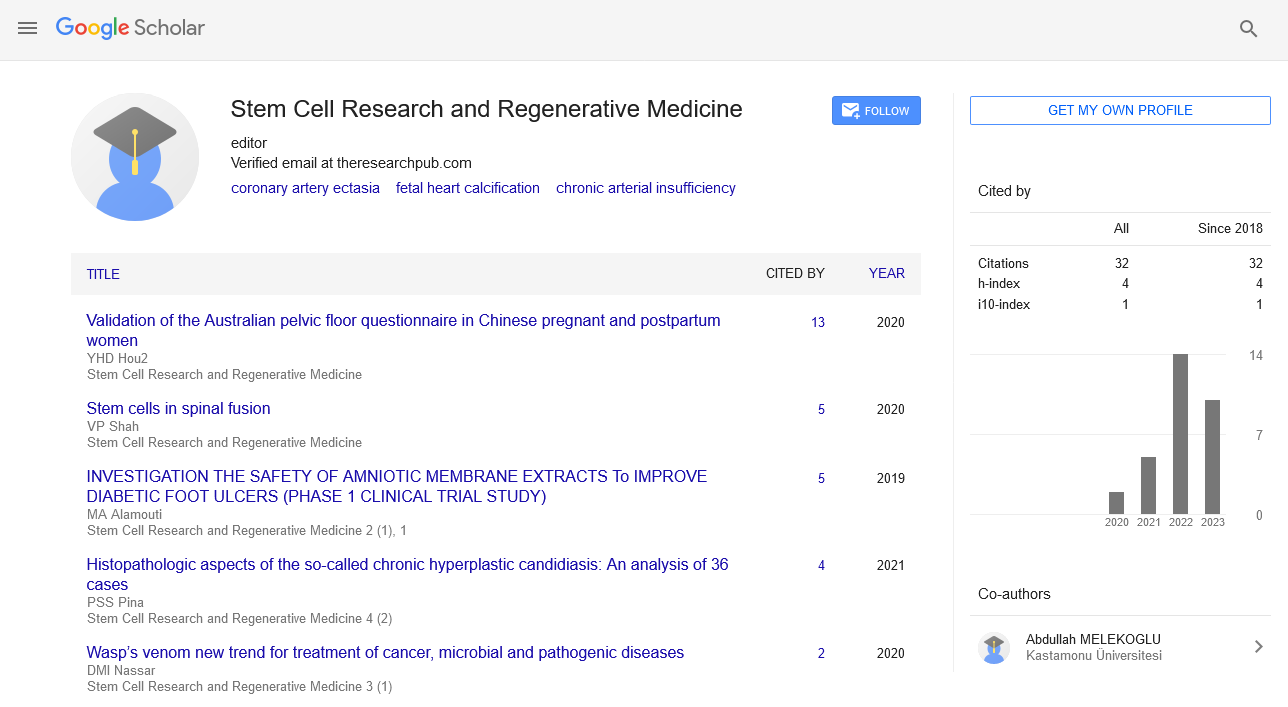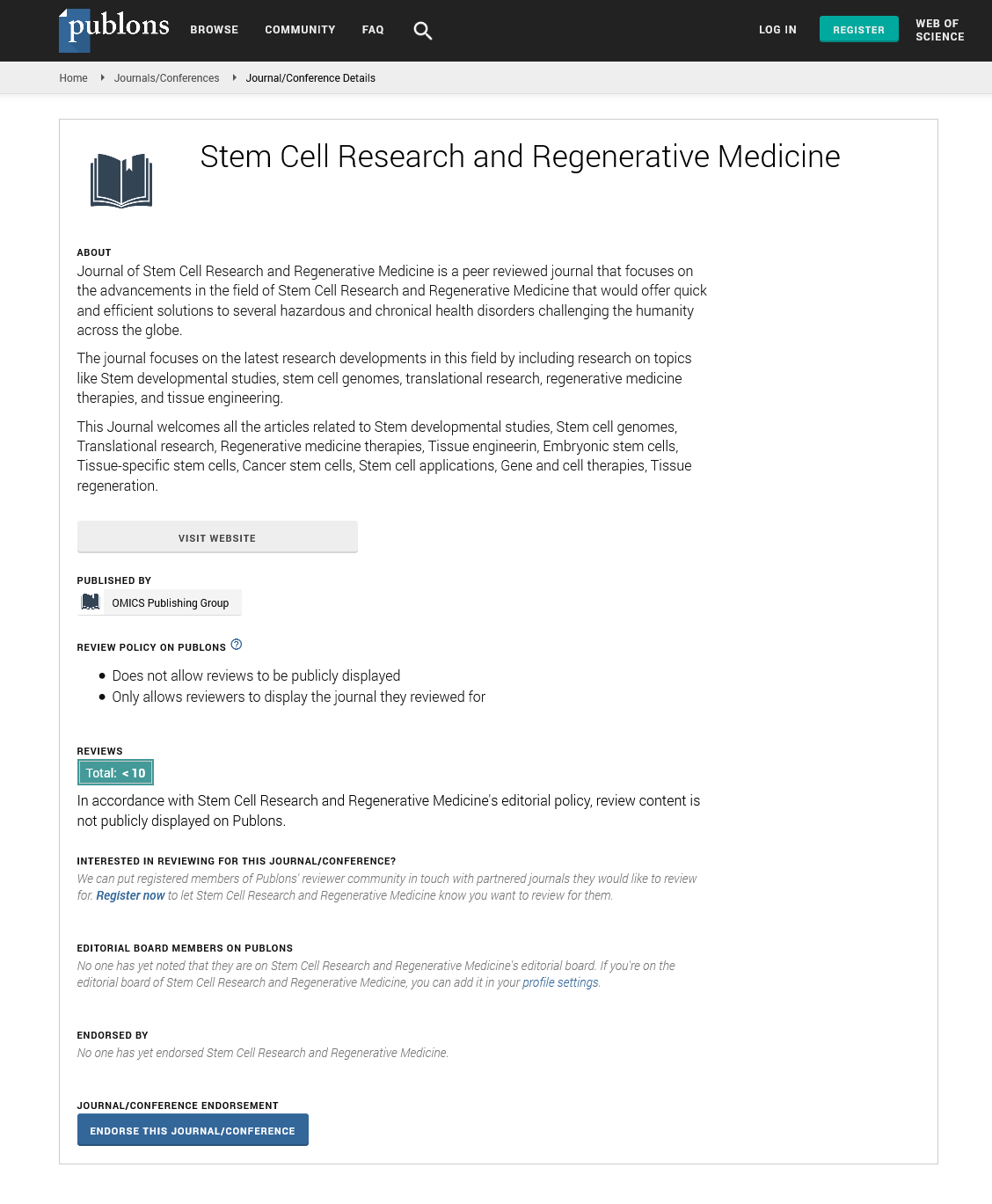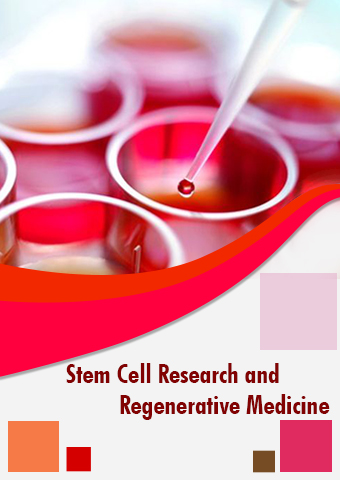Short Communication - Stem Cell Research and Regenerative Medicine (2020)
Autophagic-lysosomal degradation system in the pathogenesis of inherited metabolic rare diseases
Ozlem Kutlu
Sabanci University Nanotechnology Research and Application Center, Turkey
Abstract
Lysosomes are the most important degradative organelles of the cell, containing many hydrolytic enzymes, which are optimally active at an acid pH. Lysosomal functions are depend on coordinative action of lysosomal hydrolyzes and lysosomal membrane-bound proteins. Rare Diseases are defined as one that affects fewer than 200,000 people. Currently, six to seven thousand rare diseases have been known and the majority of them has a genetic component; can be caused by changes in a single gene, multiple genes or changes at the chromosomal level. Most people with inherited metabolic rare diseases have a defective gene that results in an enzyme deficiency. The mutations lead to defective hydrolysis in lysosome, which results in accumulation of metabolic substrates in the liver, spleen, bone marrow or central nervous system. The medical challenges of these diseases are still exist due to poorly understood pathology and limited therapy options. In cells, autophagy is one of the major degradation system, which engulf intracellular macromolecules by autophagosomes and deliver them to lysosomes for degradation. To date, autophagy abnormalities were observed in a variety of metabolic rare diseases. The aim of the talk will be to summarize about the autophagydependent molecular mechanism of these diseases and to discuss research efforts for their diagnosis and therapy.
Publications
1. Physiological and pathological significance of the molecular cross-talk between autophagy and apoptosis
2. Niosomal Drug Delivery Systems for Ocular Disease—Recent Advances and Future Prospects
3. molecules Therapeutic Nanoparticles and Their Targeted Delivery Applications
4. Protein Kinase C Isozymes and Autophagy during Neurodegenerative Disease Progression
5. Enhancing the efficiency of Electronic Cooling Devices by Bio-coatings
6. Autophagy as a molecular target for cancer treatment
7. Inertial focusing of Cancer Cell Lines in Curvilinear Microchannels
8. Nanoparticle Based Induction Heating at Low Magnitudes of Magnetic Field Strengths for Breast Cancer Therapy
Biography
Ozlem Kutlu received the B.S. degree from Department of Biology, Ege University, Izmir, in 2002, and the MSc and Ph.D degree from the Department of Material and Life Science, Kumamoto University, Japan, in 2008. During 2009–2012, She was a Postdoctoral Fellow in Molecular Biology, Genetics and Bioengineering Program, Sabanci University, Istanbul. She is currently an Associate Professor and Research Team Leader at Sabanci University Nanotechnology Research and Application Center (SUNUM). Her research interest is molecular regulation of genetic diseases. She focuses on Human Rare (Gaucher, Ichthyosis, Niemann-Pick etc.) and common Genetic Disease (Alzheimer, Parkinson etc.), Drug/Gene Delivery with Biodegradable Nanoparticles and Biomedical Application of novel Medical Devices.


